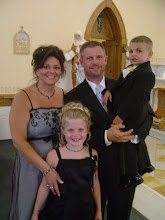Internet Safety ~ Cyber Bullying ~ Digital Citizenship ~ Nettiquette
Buzz words in educations today. I’ve facilitated many discussions and presentations regarding those topics... ...for students, parents, and recently teachers. The information (as with anything technology) changes often- and quickly! My advice is always:

Know the computer/technology, know your kid(s), know the dangers, know the tips. Know how to Keep Safe.
The topic I‘d like to explore is the legal side. According to the law, what is the role of school personnel in regard to social technologies- specifically using them for personal reasons. There are always rumors: a teacher was fired for posting a picture on FB of herself drinking a beer. Another teacher was placed on suspension for subscribing to a gay/lesbian dating site. A parent sued when a teacher DID report a student for having questionable pictures on their personal cell phone. And the flip side, a parent sued when a teacher DID NOT report a student for having questionable pictures on their personal cell phone. The question on the minds of many educators is: what are my rights? What is expected of me in and out of school? Professionally and personally?
To begin, I consulted the PSEA (Pennsylvania State Education Association) website and their pages dedicated to Technology & Your Profession. I wanted to learn the current position of the institution that exists to protect me – an educator. Years ago, or dare I say up until a few months ago, it was the position of PSEA to say “don’t do it” in regard to sites like Facebook. However, with the explosion of social networking sites for educational purposes, PSEA seems to have changed their stance. Instead, according to their website, they advise users to 1) Think Before They Post, 2) Know Their Friends, 3) Scrutinize Pictures for Appropriateness, and 4) Protect Privacy. Common sense for the most part. The question remains: who determines appropriate? Is a picture of an educator holding a glass of wine an issue?? Or worse, an educator at a party – outside of school hours, not on school property- in a risqué position…is that a problem? Do educators have rights in their personal life?
I jumped on Google and searched using the following: teacher, technology, rights, school code, school law, and all combinations. I found a great resource of current court cases on the NSBA (National School Boards Association) website. There is a section dedicated to recent cases involving technology. Included:
~a Millersville University Student is removed from a student teaching assignment based on a picture posted of her on Facebook;
~a non-tenured teacher’s contract is not renewed based on his My Space profile; and
~Students create online parodies of their principal…what are the principal’s rights/obligations?
The court rulings are interesting to say the least, and not always consistent! I continued exploring…one site led to another and another. I found, as can be expected, cited cases, opinions, comments, rumors, tips, etc. Other interesting reads include: Blogging While (Publicly) Employed: Some First Amendment Implications and Teacher Disciplined for Facebook Postings . In both instances, educators were disciplined for using social networking sites to complain about their workplace.
I guarantee this topic will continue to evolve…and again, the most important thing I (we) can do is pledge to Stay Informed! Know: what is happening, what are our rights? what are the expectations as an educator and a student’s role model…



I also just heard about a High School teacher whose blog had to be terminated. The teacher used it for instruction in his class. The teacher's blog clearly named his class and had student comments to assignments w/ their email addresses attached...oops!
ReplyDeleteI never really thought about many of these concerns. I actually went to Millersville and heard about the student who was removed from student teaching due to her Facebook page. I know for a fact that there were no written guidelines saying exactly what was appropriate and what was not. I know that I don't punish my students for behaviors that happen outside of the classroom. I also don't punish them for offenses that we don't outline together at the beginning of the year. As a district/administrator, I think it is important to really outline any expectations of your staff when it comes to these types of tools. I know much of this is common sense-don't post your student's email addresses, and in another example I found, don't post profane language on a newspaper site from your school computer-but for the most part, teachers are using these tools responsibly. Administrators need to make it clear to teachers exactly what these AUP's mean to avoid these types of incidents, and allow access to those teachers who want to use these tools.
ReplyDeleteI know that Facebook has caused issues within my corporation. It is scary when you post something harmless (well, you think harmless) online, and then you are spoken to about it at work. I know this has happened to a few people I work with, and as a result, none of us can be "friends" on Facebook. I always thought it was a fun way to stay connected, but the more I hear about Facebook, the more leary I am to participate because of the repercussions at work.
ReplyDelete